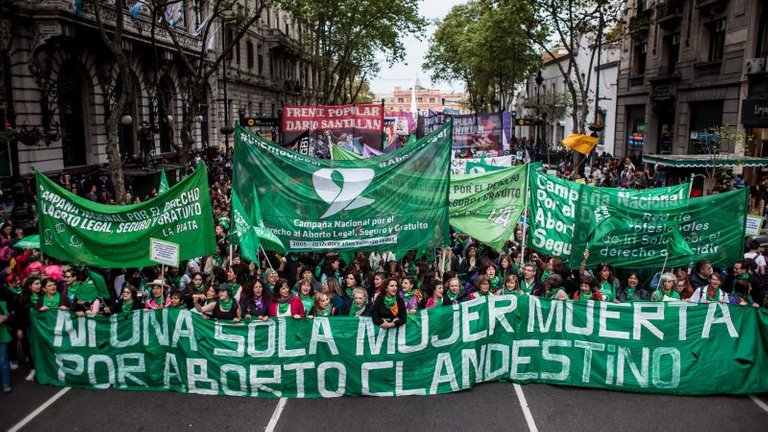During a historic Women's Week in Argentina, on March 6 the Argentine Senate will hear lawmakers present a bill to legalize abortion. The bill is spearheaded by the National Campaign for the Right to Legal, Safe, and Free Abortion and has been signed by 71 members of Congress from across political parties.
After decades of delays, including six failed attempts since 2005 to pass similar bills, this year the government gave the green light to debate the bill starting March 20. Given the wide variety of opinions on the issue, even within parties, the government gave legislators total freedom of expression, encouraging them to vote according to their own principles and convictions.
On March 1, in his opening speech for the regular sessions of Congress, Argentine President Mauricio Macri said:
Translation Original Quote
There have been 35 years of neglect of this very sensitive issue that we as a society are obligated to address: abortion. As I have said more than once, I am pro-life. But I am also in favor of the mature and responsible debates that we as Argentines must carry out. For this reason, I am glad to see that Congress is including the subject in its agenda this year. I hope that all voices are heard and all positions are taken into account.
Additionally, Macri brought up two other items of interest in the arena of gender equality: the extension of paternity leave–which as of today permits only a couple of days–and the promise to reduce the wage gap between men and women, something that already has a legal framework, but one that, in reality, leaves much to be desired.
It is notable that the initiative to host this debate in Congress comes from a government known to be right-leaning and conservative. The debates faced delays and barriers during the two terms of former President Cristina Kirchner, who belongs to the opposing political party. Kirchner was outspoken in her support of the abortion ban.
The abortion debate in Argentina is not cleanly divided along party lines, but rather revolves around the personal experiences, values, and religious beliefs of individuals. The wide range of opinions in favor of and against decriminalization is found both within the governing party and in the opposition.
Hi! I am a robot. I just upvoted you! I found similar content that readers might be interested in:
https://globalvoices.org/2018/03/08/as-women-march-in-argentina-the-country-debates-legalizing-abortion/